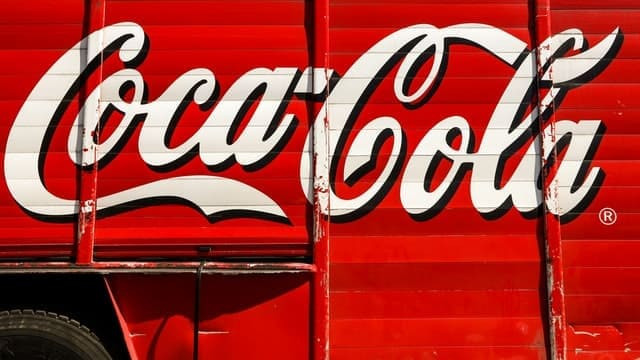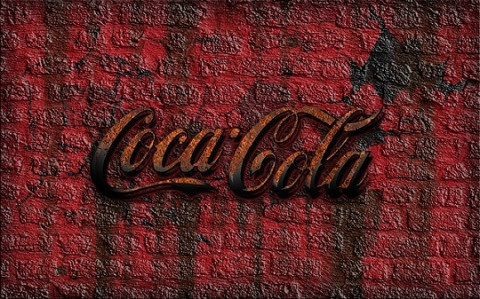
8 min
0
10.04.2022

The Coca-Cola Company is a globally renowned food and beverage industry giant. Whether you are studying business, marketing, or sales, it is a case you will definitely look into as a part of your curriculum. If you have been assigned to create a written work on Coca-Cola knowledge management, there are many nuances to consider in order to receive an excellent grade. Studybay has collected all the essential information that you can use in your report.
A Brief History of the Coca-Cola Company
On January 31, 1893, the trademark of the most famous soft drink in the world - "Coca-Cola" was registered. However, the creation of Coke dates back to March 1886, when John Pemberton was trying to find a new pain reliever. Mixing sugar syrup, caffeine, and processed coca leaves, Pemberton got a unique sweet brown drink.
Throughout over 125 years of history, Coca-Cola has achieved a variety of impressive milestones. Here is a timeline of some of the organization’s brightest moments:
- 1888 - Shortly before Pemberton passed away, he divested parts of his business. Asa G. Candler received the biggest holdings and started expanding the scale of Coca-Cola. He managed to widen the distribution chain beyond Atlanta, shifting the focus to the national level.
- 1894 - Joseph Biedenharn added bottling machines to a soda source in Mississippi.
- 1899 - The bottling line expands, with businessmen in Tennessee receiving the rights to the bottling and sales of Coke.
- 1916 - The creation of the iconic glass bottle shape.
- 1931 - Illustrator Haddon Sundblom was invited to paint Santa for Christmas season commercials that consequently shaped the way we see him today.
- 1971 - The Coca-Cola company launches one of its legendary ads, known as the “I’d like to buy the world a Coke” commercial.
- 2006 - The Bottling Investments Group was founded, managing the company's bottling operations worldwide.
Nowadays, Coca-Cola counts its revenues in billions of dollars and boasts an outstanding brand portfolio.
What Is Knowledge Management?
Now that you are familiar with the subject of your report, it is time to move on to the definition of knowledge management (KM).
In the context of the global economic crisis, modern companies must activate their entire internal potential to use all the beneficial business opportunities they can. A fixed asset that has the power to improve the competitiveness of enterprises with equal financial opportunities is explicit and tacit knowledge. It is typically received with the arrival of a new employee or from the company's operational experience. Turning knowledge into corporate capital that allows gaining a competitive advantage is the essence of knowledge management.
In other words, KM is an approach that allows a company to gather, store, and process data efficiently for the purpose of boosting organizational growth and development. A company's KM typically consists of three parts:
- Strategy - goals and the approach to achieve them
- Processes - methods of managing tacit and explicit knowledge
- Tools - Infrastructure for explicit knowledge
Why Does Coca-Cola Need Knowledge Management?
The Coca-Cola Company and its bottling partners currently employ over 700,000 people around the world. For such a large multinational organization, the way to control the employees' performance is by providing proper KM. The key to that is to make them rely on the Coca-Cola system and see the growth potential in it. Therefore, it is essential that the company's management supplies the workers of all levels with essential technological tools and enables them to improve their skills.
Set-Up of the Coca-Cola Knowledge Management System
Coca-Cola is aiming to further its endeavors of perfection and increase consumer satisfaction. KM serves as a framework that showcases the areas that require priority improvement. It also enables the management personnel to see which parts of the organization require assessment and what information needs to be gathered for its further expansion.
Coca-Cola has built a structured system to enable its employees’ effective performance. The secret of its success is decentralization. For example, the company’s managers are responsible for their segment and are, therefore, results-driven. Assigning local management is also extremely beneficial in terms of adapting to local business conditions.
Besides, a large company like Coca-Cola has the advantage of having developed knowledge in every business process throughout the decades of presence in the industry. Such knowledge can be effectively used not only by the departments that have gathered it but also by others to ensure a deeper understanding of the workflow and stronger commitment.
The mechanisms used by Coca-Cola for its KM are mainly the following:
- Intranet system
- Feedback sessions
- Informal networks
The frameworks that are used by the Coca-Cola company today are the result of the harmonious work of its various departments. In other words, the giant soft drinks manufacturer has managed to flourish thanks to the tacit knowledge of its staff. This was only possible through creating a strong bond between KM and collaboration. Therefore, the Coca-Cola system is thought to be more of a network of people interconnected by knowledge sharing regardless of location and position in the company.
KM Implementation at Coca-Cola
Coca-Cola’s strategy has force models and value chains at its core. These approaches have been helpful for the organization’s revenue maximization and preparation for future business reverses.
Besides, as mentioned before, the tacit knowledge of Coca-Cola’s staff has managed to bring the organization to an international scale. The goal of KM in the company is to ensure that this knowledge continues to spread within the workplace, develop, and drive innovation and positive changes.
The focal points of Coca-Cola’s KM are:
- Ensuring great interpersonal communication among staff members
- Efficient use of digital tools within the company
- A clear hierarchy among the staff members
- Local management centers
- Regular business reviews
Apparently, this strategy turns out to be effective for Coca-Cola, as the company has managed to withstand multiple crisis periods. Let's take a look at one of the key elements of the knowledge management of Coca-Cola that has helped it succeed.
Coca-Cola's Successful Intranet Strategy
Coca-Cola’s knowledge management strategy owes a big deal of its success to the integrated information system created by IBM. This intranet solution built on IBM's Content Manager, Lotus Notes, and Lotus Domino software has become one of the organization's biggest digital assets.
This system creates marketing icons and connects all Coca-Cola employees, from project managers to regular team members. It consists of large archival text, image, and video libraries available to associates in over 200 locations, enabling electronic data interchange between them. This information technology solution allows Coca-Cola staff to repurpose valuable information that it already has and benefit from the knowledge by improving the speed and efficiency of its workflow.
What Is the Future of Coca-Cola's KM Strategy?
Coca-Cola seems to have a bright future regardless of the complicated economic situation in the world. Potentially, the F&B giant renowned for Coke, Diet Coke, Sprite, and other brands, will be developing its information systems and advancing its intranet strategy.
Also, in 2020, Coca-Cola announced that its top points of focus are innovation, marketing strategies' efficiency, and overall effectiveness. The company is also driving change by rationalizing and reorganizing its portfolio to tailor an impressive collection of different scale brands to fit the needs of the customers globally.
Another exciting growth channel for Coca-Cola is its Platform Services initiative. This organization is meant to support the functioning of operating units to upgrade their efficiency and capabilities on a large scale by dealing with consumer analytics, digital commerce, and data management.
How to Write an Informative Coca-Cola KM Report
Now that you know all the main points regarding the Coca-Cola knowledge management system, you are ready to start working on your case study or report assignment. However, being aware of the topic's nuances is not enough to land an A+ grade. Here are some other critical things to keep in mind:
- Do proper research on Coca-Cola, its brands, stakeholders, bottlers, knowledge management, and customer satisfaction strategies.
- Structure your report well: provide the reader with general info about the company, its KM strategy, how its implemented, and where it leads.
- Proofread your report, edit it if needed, and check for plagiarism.
The task of writing an exhaustive report on such a complicated topic as Coca-Cola knowledge management is not an easy task. At Studybay, we understand that you may not have time to dedicate enough of your time and effort to such a written assignment, so we are always happy to help. Our experts can write an outstanding report or case study or assist you during the proofreading and editing process. Reach out now to get started!



